Interview by Yuki Lei
The Municipal Affairs Bureau (IAM) has repeatedly stressed the positive achievement of its ongoing Trap-Neuter-Adoption (TNA) programme and yet, as the number of stray dogs and cats continues to increase and shelters for accommodating them have reached their maximum capacity, an animal rights group believes that it is high time for the government to relaunch the Trap-Neuter-Return (TNR) programme, which has been abruptly suspended several times in the past, even though animals rights activists regard it as the most effective way of controlling stray animals.
“TNR is the most effective, practical and the best way to deal with [stray] animals,” Anima-Society for the Protection of Animals (Macau) Executive Committee President Zoe Tang Tinna has told the Post in a recent interview.
‘No. of adopters doesn’t catch up with No. of stray animals captured’
Tang recognised the efforts made by the bureau in improving the welfare of stray animals as well as the effectiveness of the ongoing TNA implementation. However, she was quick to add that the effect of the TNA approach was “limited”, referring to the fact that the number of adopters is unable to catch up with the number of stray animals captured after all: “Nowadays, some animals tend to be more precocious and may get pregnant as early as when they are only four to five months old, and taking canines as an example, their reproduction rate is basically about six to seven puppies in a litter at a time, and some may even give birth to up to 14 puppies in one litter; whereas cats basically have a reproduction rate of four or five kittens in a litter each time at the most…It may be possible that the whole of Macau, which is estimated to have 2,000 or 3,000 stray animals [cats and dogs] right now, may have 6,000 in a couple of years’ time, and this number is not going to come down”.
Talking with the Post at the non-governmental organisation’s (NGO) Cat’s Paradise in Coloane, Tang pointed out that the rise in the number of dogs and cats rehomed from the bureau’s two shelters – one on Avenida do Almirante Lacerda (提督馬路) in the Macau peninsula and the other on Estrada de Cheoc Van (竹灣馬路) in Coloane – in recent years has been due to the assistance of various local animal welfare organisations. However, she said, in the case of her organisation, for example, which currently is looking after more than 400 canines and 300 felines, many of the local animal protection groups are facing the problem of having reached their maximum capacity. Coupled with the lack of funding, not only the capacity of the shelters, but also the financial burden of many of the organisations has already been stretched beyond their limits, so that they might not be in a position to rescue more abandoned and stray animals, which then, ultimately, end up being put on the bureau’s euthanasia list, with older, more aggressive dogs or dogs requiring veterinary care appearing more and more often on the list.
‘Intermediary between govt and volunteers is needed’
According to Tang, the bureau began to pilot the TNR programme for stray cats as early as 2007, but the programme was suspended in 2015. It was revived in 2021, based on a plan to use the Canal dos Patos (鴨涌河) area as a pilot site, but in the end, the programme has still not got off the ground, which, she said, was due to the fact that there was no intermediary between the government and the city’s animal protection volunteers. She said: “Many of the volunteers are worried about the government prosecuting them for feeding stray dogs and cats based on the information provided by them,” suggesting that the government should issue special permits for frontline volunteers “like us who feed stray dogs and cats”, which, she said, would also better identify volunteers in different districts, thus facilitating the implementation of the TNR approach.
‘Animal issues are equally important’
“People’s livelihood issues are very important, but animal issues are also equally important,” said Tang, who emphasised her dissatisfaction with the current animal protection law by citing a case in 2020 in Iao Hon district, where three cats died at the same time in a very unusual manner in the staircase of a residential building. She said that the police forces often cite privacy as the reason for failing to look into their citywide CCTV camera system for subsequent follow-up investigations, both in the 2020 case and a recent case in Coloane where a woman abandoned her cat in front of the organisation’s Cat’s Paradise.
With the changes in civil society, although it “performs practically no function”, the current Animal Protection Law which came into effect in 2016 should be reviewed and amended in a comprehensive and synchronised manner, Tang said, adding she hoped that the authorities could allow some more “grey areas” as far as animal protection is concerned, such as in terms of dogs and cats rescued from private properties, so that the authorities could also take the mental state of the affected animals as a main factor into consideration, as “merely putting down the food and water [at private properties] is not equal to perfect care”.
Regarding residents complaining about animal protection organisations insisting on home visits to prospective adopters of dogs and cats, Tang responded that “we just simply want to see if the environment would be safe for the cat or dog, not the size of the apartment nor the financial status of the adopter”, saying that she has come across quite a number of cases where cats died or were abandoned again as a result of getting injured after falling from a residential flat due to the lack of window or balcony nets: “When the cat survives the accident but is injured, most of the owners will say that they can’t afford the veterinary expenses, so we don’t want to keep the cat anymore, even though they were promised a happy and everlasting home, they will be deprived of their home once again!”
According to Tang, Anima included home visits in the adoption requirements five years ago, emphasising that each home visit should last no more than four minutes.
450 shelter dogs & cats rehomed, but 397 euthanised in Jan-Oct: IAM
Meanwhile, according to the IAM Macau Animal Health Control Website, the number of dogs and cats taken in by the city’s two kennels as strays or caught outside in the first nine months of this year exceeded 900, 90 more than in the whole of last year, a difference of more than 300 when compared to the whole of 2015, the year before the city’s animal protection law took effect.
The website also points out that about 82 canines and felines entered shelters in the first 10 months of this year as they had been abandoned by their owners – accounting for 77 percent of the 106 recorded in the whole of 2023, but a decrease of 156 compared to 2015.
Regarding Macau’s animal adoption statistics, according to the latest official figures, as of the end of last month, a total of 450 cats and dogs had been adopted or returned to their owners, similar to the 478 in the whole of last year. On the basis of the bureau’s data, the number of successful adoptions and rehoming of dogs and cats peaked at over 600 in 2021.
Last year, about 360 shelter animals were euthanised – 140 cats and 220 dogs, according to the official statistics, which also shows that as of the end of last month, the number of canines and felines euthanised in the bureau’s shelters had increased to 397, of which 281 were dogs.
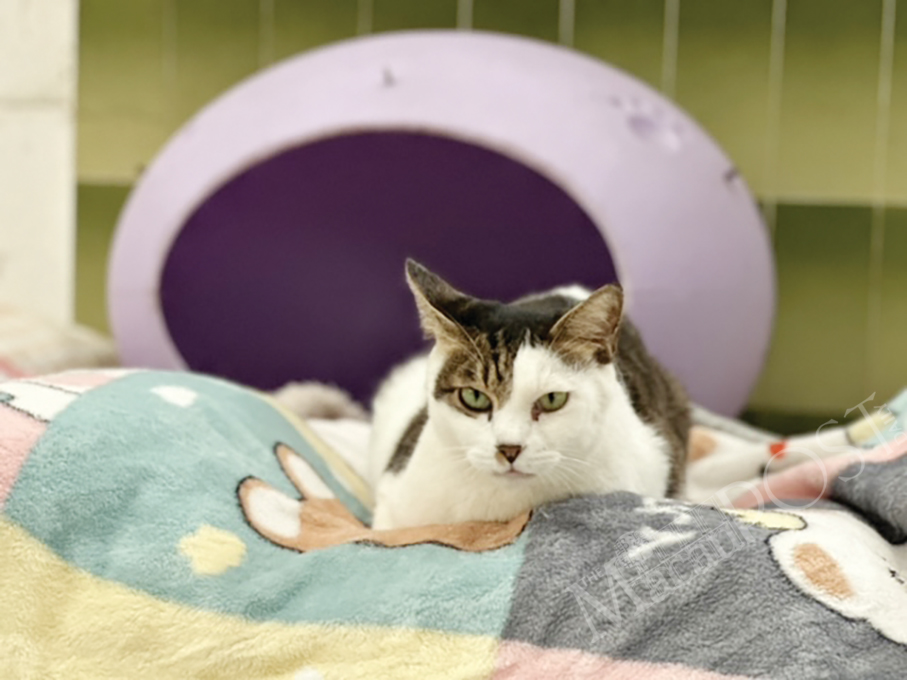
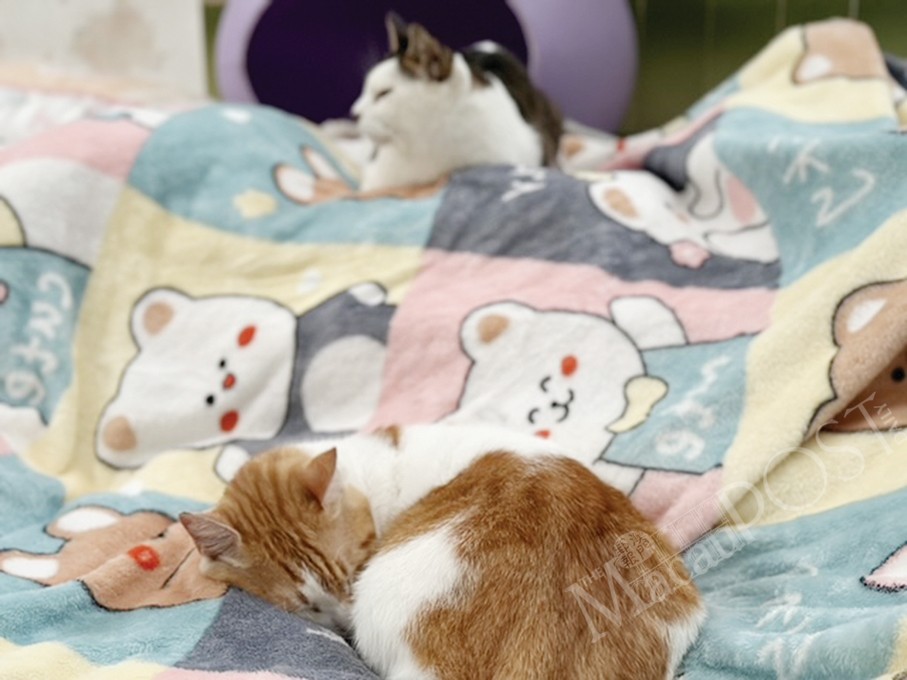
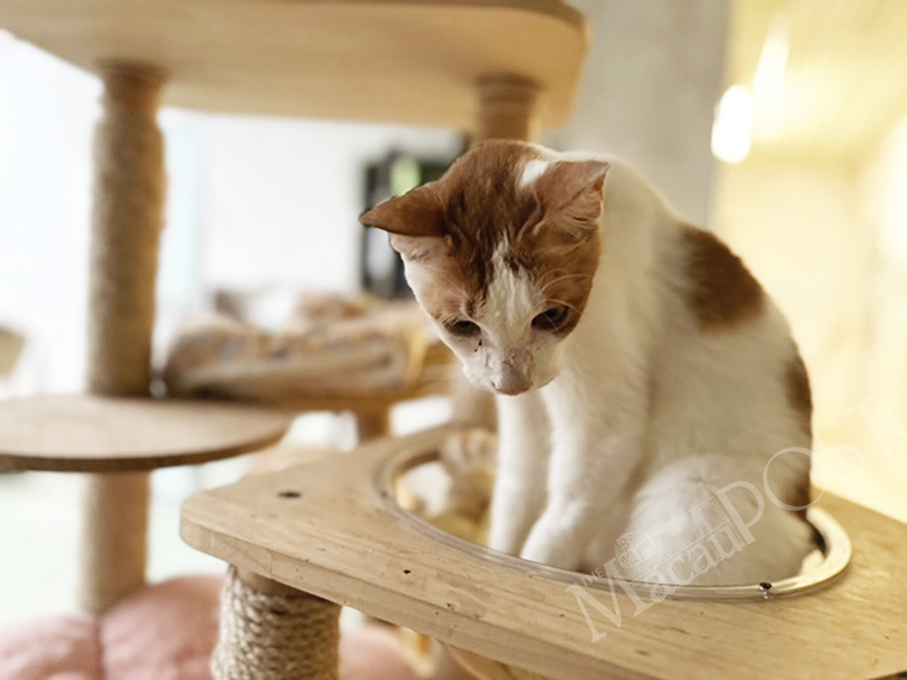
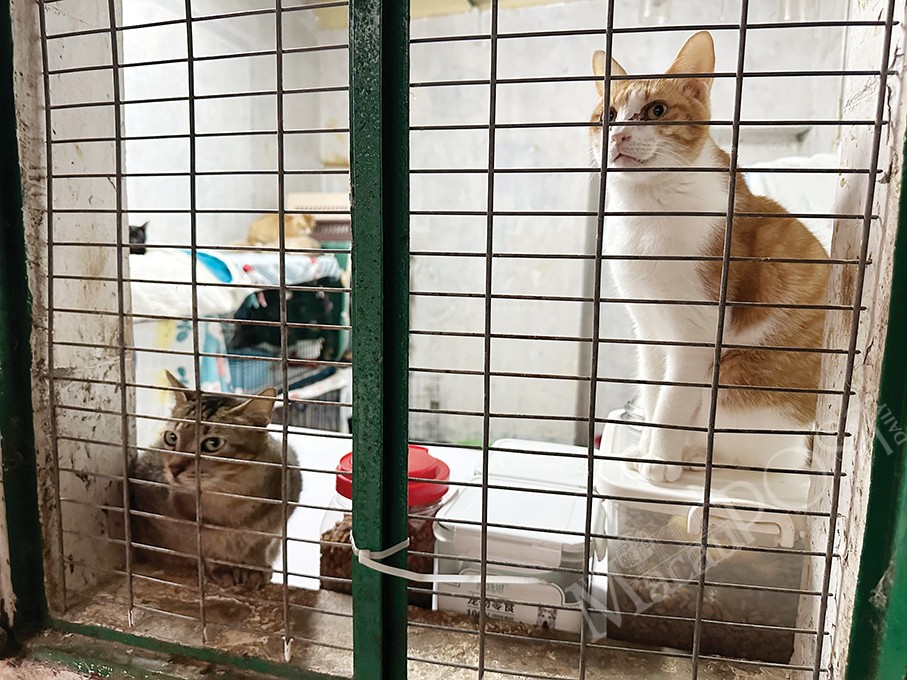
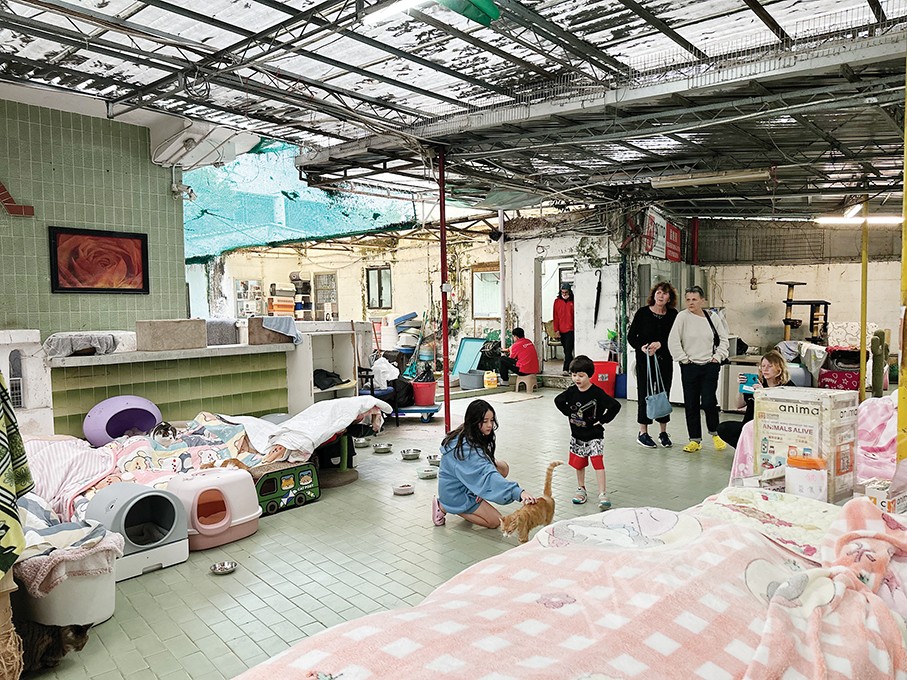

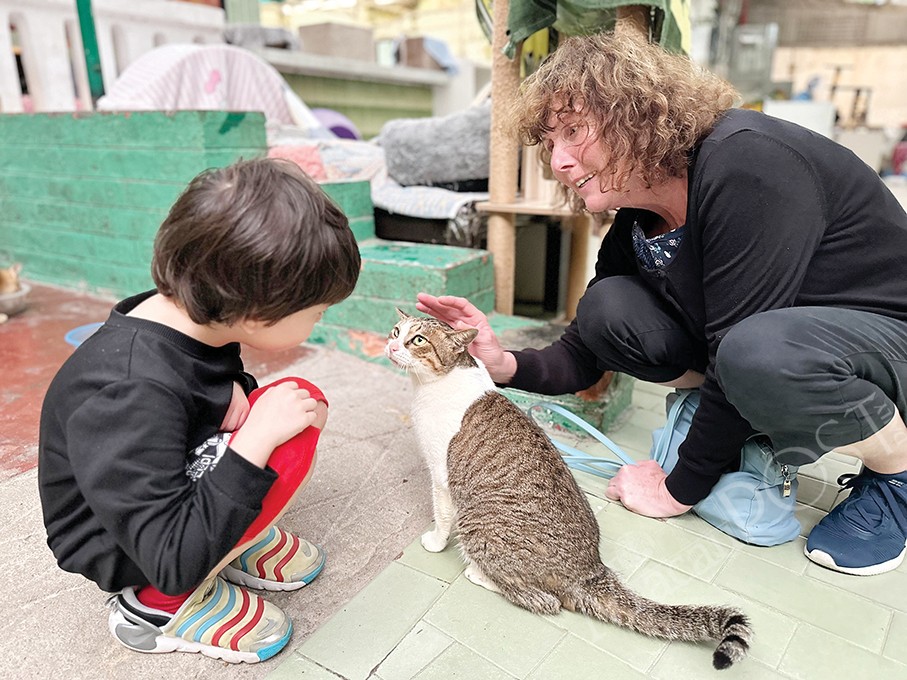
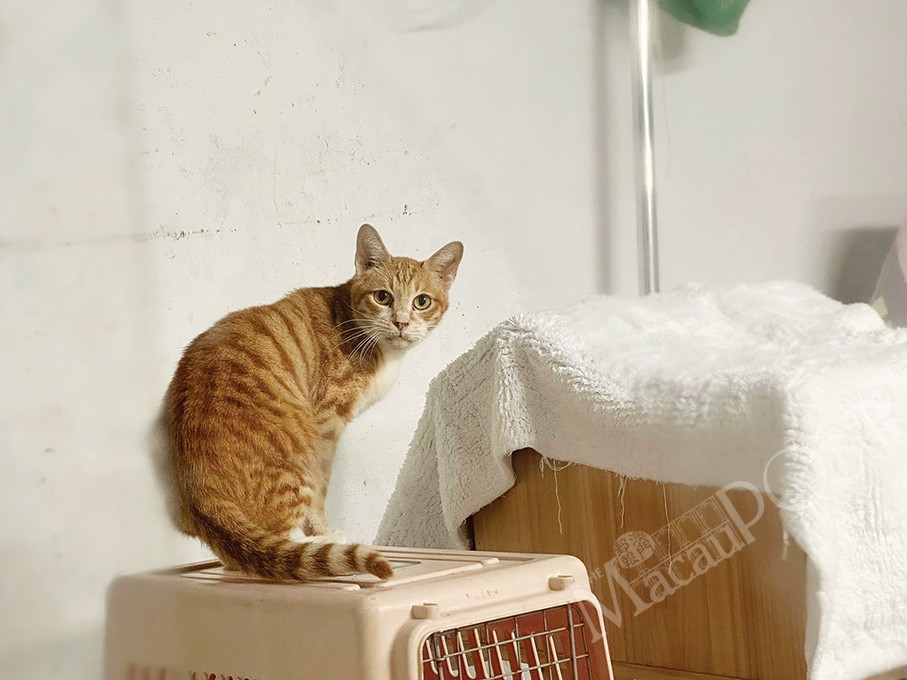
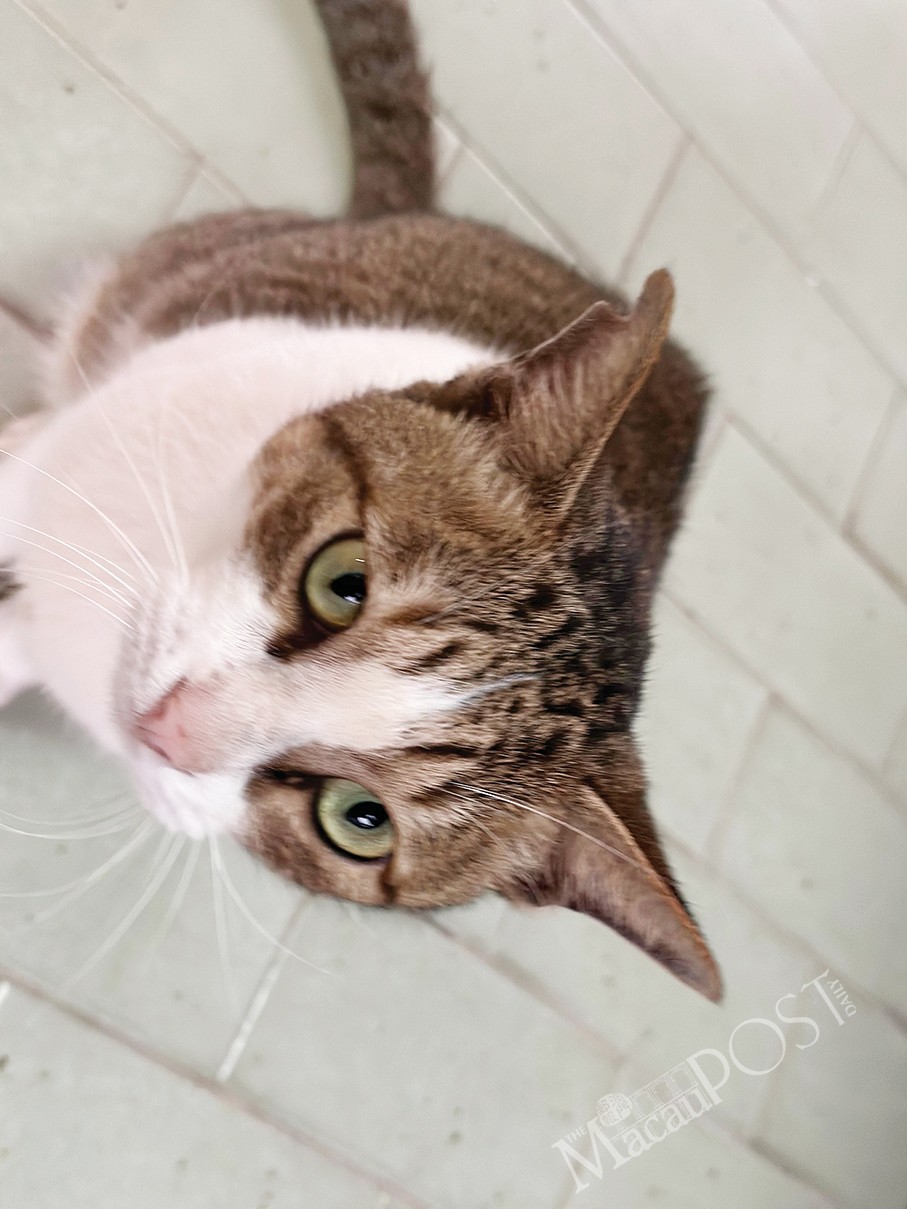
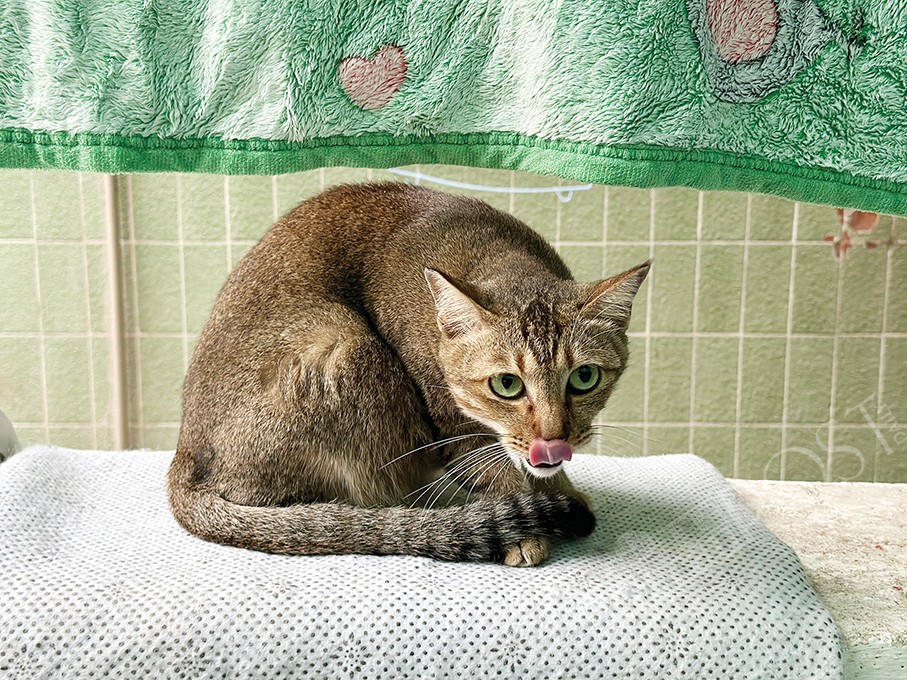
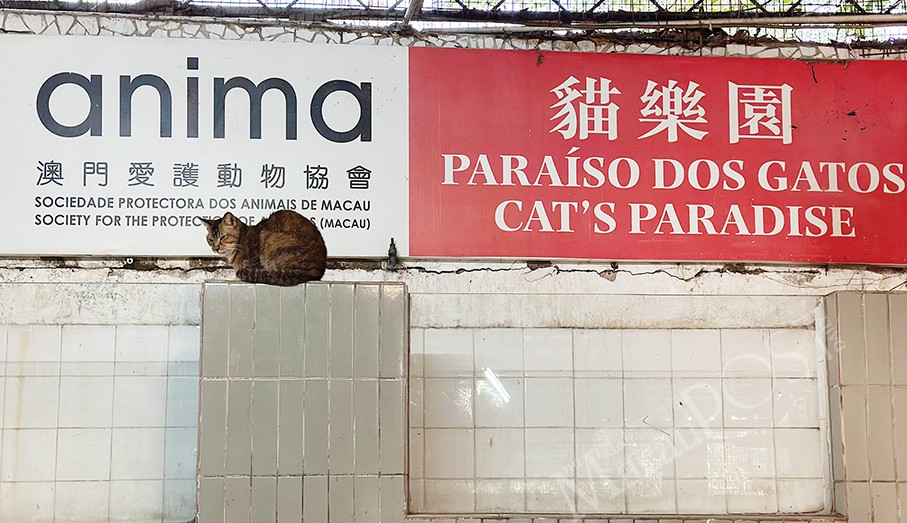
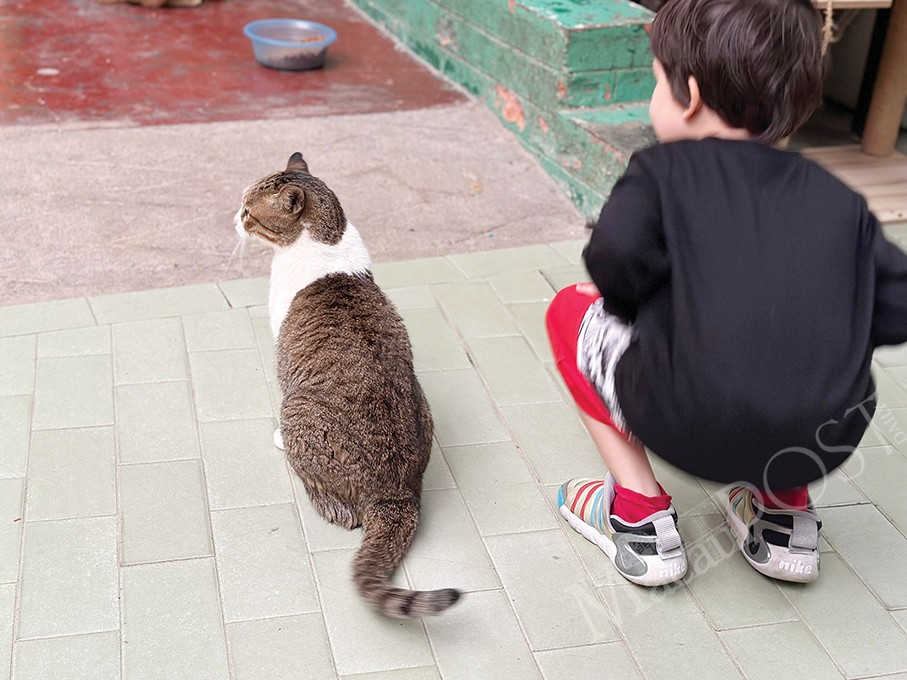
All photos taken after last Thursday’s interview at Anima’s Cat’s Paradise in Coloane. – Photos: Yuki Lei








